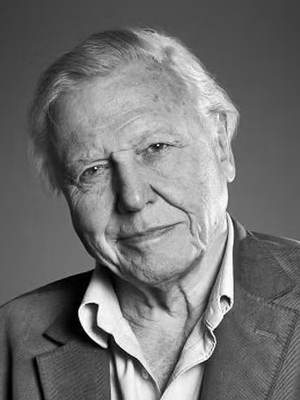         |
||||||||
   |
||||||||
 (Photo: Emilie Sandy © BBC) |
DIALECTIC
MEDAL LAUREATE—2O24 CITATION:
EXERPT FROM THE INSTITUTE'S LETTER TO SIR DAVID: Since dialectics is usually thought of as a branch of philosophy, we feel it is necessary to provide some explanation as to why we have selected a natural historian for this year's award … and perhaps the word “history” itself is a clue, since, as with history, dialectic is, above all, concerned with change. In fact, dialectic dates back to the ancient Greek philosopher, Heraclitus, who said that everything is in flux, while modern dialectic originated in the 19th century with the German philosopher, Hegel, who explained to his friend Goethe that dialectic is “nothing more than the methodically cultivated spirit of contradiction that is inherent in every human being.” Buy why should Hegel single out contradiction? And what does this have to do with change … and this award? These questions can best be answered with reference to another philosopher—one from the 20th century: Herbert Marcuse—who described dialectic simply as "the power of negative thinking.” What he meant was that dialectic has the power to confront ordinary, one-sided thinking about the world in order to see in the present moment the immanent possibility of another reality, so that we can set about creating the world as we imagine it could be. All radical change begins in this negative way, Marcuse says, by thinking in opposition to the given state of affairs. As you so often point out, we human beings are a part of nature. Our first mistake, however, is thinking that we are somehow apart from it. Our second is thinking that, being separate from nature, we are therefore free to exploit it purely for our own gain, leading us to the environmental crisis we find ourselves in today. In order to recognize, respond to and resolve this man-made crisis, we need what you have called wisdom, and what we know as dialectical thinking, which allows us to overcome the perceived separation between ourselves and nature, and to think negatively about the present moment in order to see in it, as you do, the potential for positive change, so that, in caring for nature, we care for ourselves. We conclude with a paradoxical passage from Engels’ Dialectics of Nature:
We join you, earnestly, in hoping that there is still time for humanity to transform these negative effects into positive outcomes for ourselves and for our planet. ABOUT THE DIALECTIC MEDAL: The Dialectic Medal was established in 2020 to recognize and foster dialectical thinking in diverse fields of theory and practice worldwide. It has been awarded previously to the German philosopher, Jürgen Habermas and Pope Francis. The 2024 award was announced on the 8th of May, David Attenborough's 98th birthday. |
|||||||
|
|
||||||||
|
|
|
|||||||
  |
|
 |
||||||
|
© 2O2O–4 INSTITUTE FOR ADVANCED DIALECTICAL RESEARCH
|
||||||||
